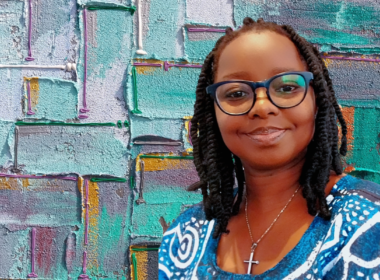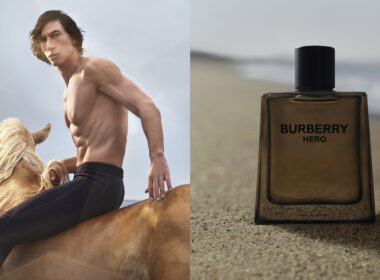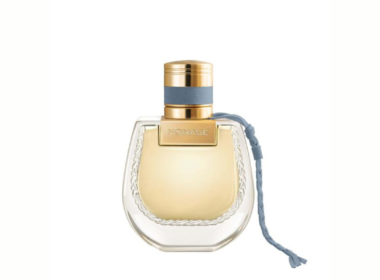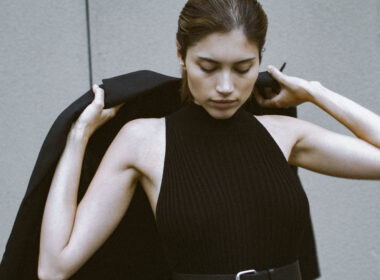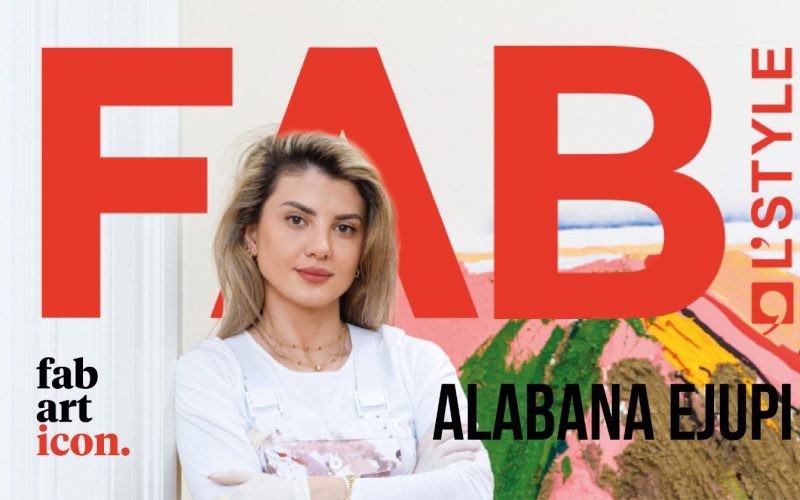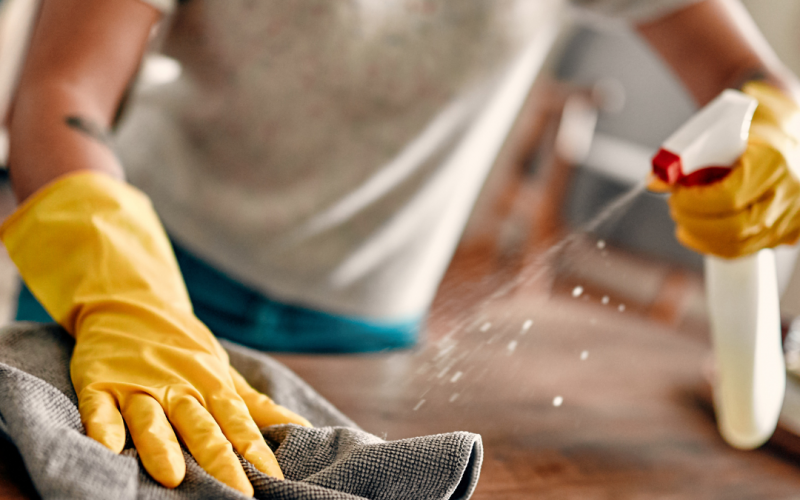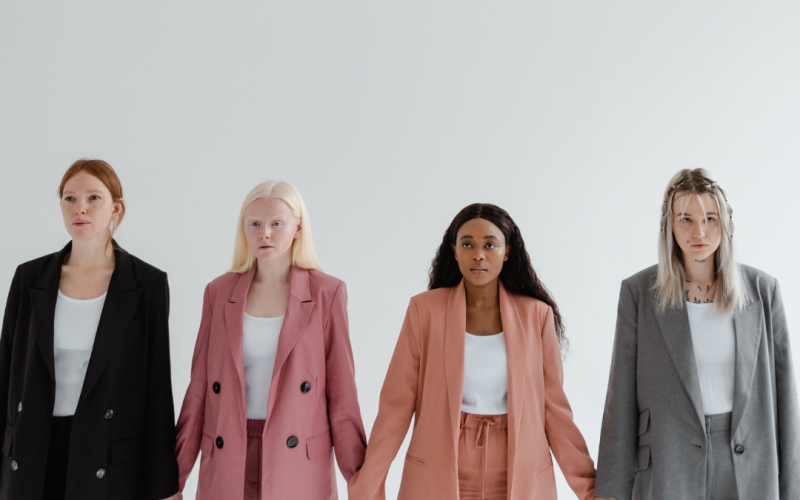Albana Ejupi, a Kosovo-born artist, has made a big impression on the European art scene and is today the darling of the art world. The 29-year-old artist investigates the manifestation of spiritual realities. “When I paint, I learn more about age, memory, love feelings, challenges, pain, wounds, and healing, pregnancy, and sex,” claims Albana. We find it immensely striking that Alabana’s work extensively explores the central issue of human diversity. Her paintings frequently depict bodies in different poses that symbolise the diversity of human relationships.
In Europe, Albana Ejupi has been involved with an array of art fairs and exhibitions. These include the Parallel Vienna Art Fair in Austria, the Vienna City Gallery Walk (Lukas Feichtner Gallery) in Austria, the Volta Basel Art Fair in Switzerland, the Survival Festival Group Exhibition in Napoli, Italy (Casoria Contemporary Art Museum), and the Trzy Mosty Fundacja Exhibition in Warsaw, Poland. She continues to ask, “What is the relationship between our bodies and the minds we inhabit? Behind the identity we project to the outside world, who are we? The age-old art of painting may still be a useful option for presenting visual answers to these queries. Learn more in this conversation with Albana Ejupi, the Fab Art Icon of the Month. Similarly, discover everything related to the business of art— how to promote your work and all it takes to succeed as an artist.
Meet the Artist, Albana Ejupi

Fab: Who or what influences your art?
Albana: In its main part, my art focuses on different spiritual and social aspects of human nature. My main approach is to understand what it means to be human. We are not simply the dressed persons we present to the world; we are the mind and body we inhabit. For the main part, I study human and animal bodies and explore how spiritual realities manifest. As I paint, I learn more about age, memory, love, feelings, challenges, pain, wounds and healing, pregnancy, and sex. In general, I believe that art must be disturbing, art must ask questions, and art must predict the future. If art is just political, it becomes like a newspaper. It can be used once, and the next day it’s yesterday’s news. Only layers of meaning can give long life to art; that way, society takes what it needs from the work over time.
Fab: What has your career’s high point been thus far?
Albana: This question is quite tricky to answer, as I think of my career as a process. Of course there are ups and downs, but I like a quote from Bob Dylan that might answer this question better: “An artist has got to be careful never to really arrive at a place where he thinks he’s at somewhere. You always have to realise that you’re constantly in a state of becoming. And, as long as you can stay in that realm, you’ll sort of be alright.”
Painting is not about making pictures! Not for me. For me, it’s more of an emotional release. That’s why I can only paint when I feel like it.

Fab: From start to finish, how long does it typically take you to complete a piece of art?
Albana Ejupi: Hmm, that’s really hard to say. It depends on the spiritual and inspirational mood. How deeply I am feeling the current work and how much joy I feel discovering the unknown. The experience of creating a new painting can feel like exploring a place you’ve never been before. It is absolutely exciting, and it is not at all clear what you will discover or where it will lead you. It is also not clear with what knowledge and what perspective one will emerge from the creation of the work. Being an artist is like being an explorer or an adventurer.
Even when our ideas come quickly and abundantly, the materialisation of the form may take hours, months, or even years. But sure, the technical part has a period that usually makes little difference in all the pieces. If I had to specify a certain period, I would say around a week or a month on average.
Fab: Do you follow a core philosophy that informs how you express yourself creatively?
Albana: Like I mentioned previously, our ideas come quickly and abundantly, but the materialisation of the form may take hours, months, or even years. What I have come to learn over the years is that I work out of the necessity of painting because it’s necessary for my spirit and because I am not able to feel joy in my life when I don’t. Many of us have discovered the hard way that to bury the artistic call and shirk the work is to court desperation and misery.
“Painting’s not just about painting; it’s also about waiting.”
Being patient is so important in art, especially painting. Knowing when to start and when to stop; knowing when to think; and, most of all, understanding and knowing when it’s finished, not to be afraid to let go or destroy. Painting is not about making pictures! Not for me. For me, it’s more of an emotional release. That’s why I can only paint when I feel like it.
If I don’t feel like it and I don’t paint, I almost feel a kind of illness. Sort of paralysed in my mind, deeply disturbed and unhappy!
Fab: Albana Ejupi, where do gender and sexuality stand for you in your art?
Albana: Gender and sexuality are important forces that shape every aspect of our lives. We know our bodies, minds, and selves through our gender and sex. As a society, legal definitions and social expectations about women and men, sex, and reproduction organise our medical, legal, educational, and political systems.
Many of my paintings depict bodies in different positions. The variety of connections reflects the diversity of human relations between different genders. I mostly paint when two bodies meet and depict the sexual connection between them, not necessarily the gender distinction. Nonetheless, in my PhD-Thesis, I research the question of to what extent rebellion against the hegemonic patriarchal ideologies of various different eras and societies has driven the evolution of the mediums and materials used for artistic depictions of women’s bodies by female artists, as I plan to incorporate these topics more and more in my professional work.
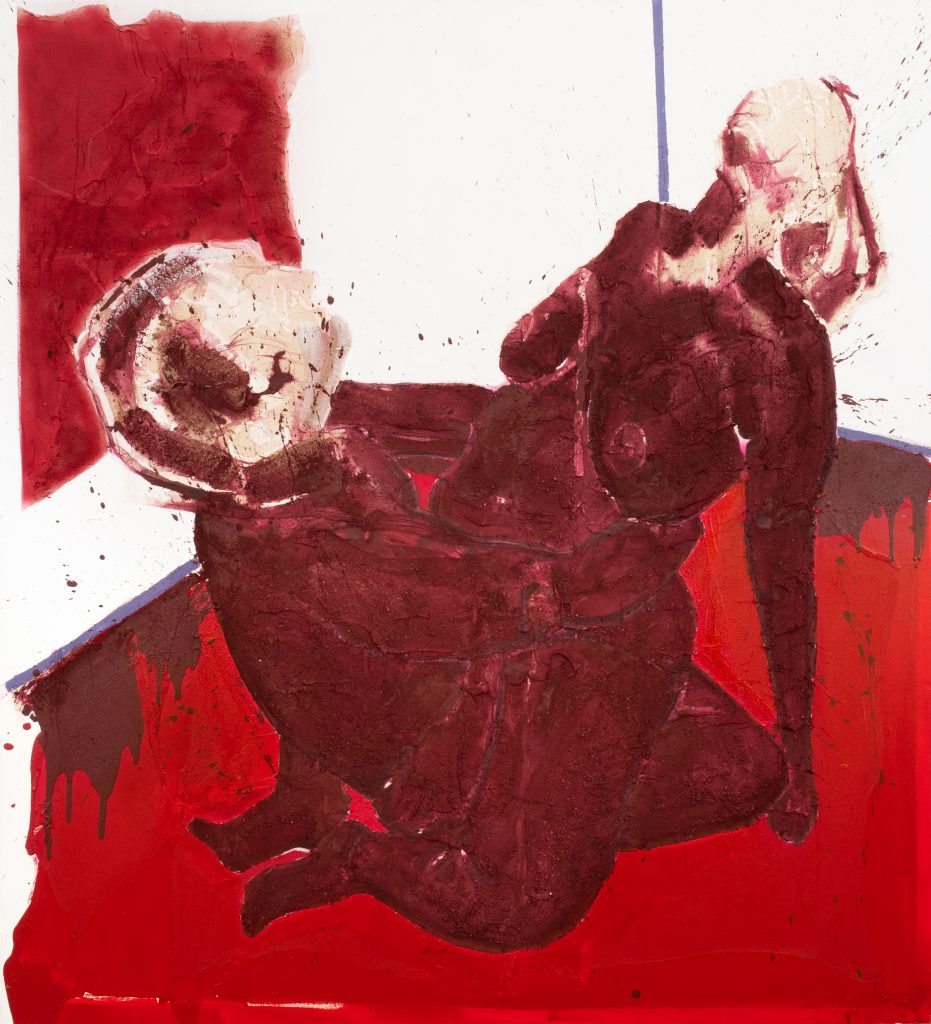
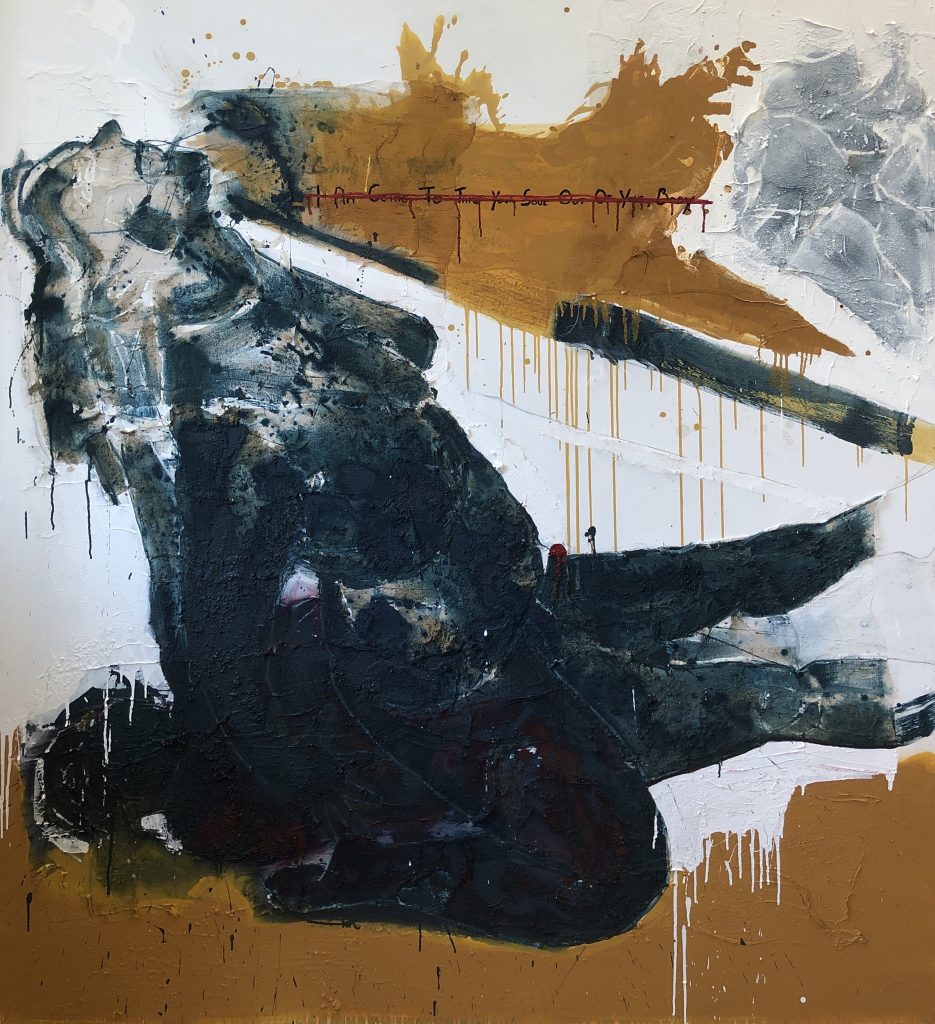
Fab: Despite the popular perception that academics have little to no bearing on the art of painting, some even contend that you don’t need to attend school because it is inborn. You are a doctoral candidate nonetheless. What do you think about this claim? Would you agree that your education has in any way influenced your creativity?
Albana: Historically, there are many examples of successful artists who were not part of academia or had no “academic background.” Nonetheless, in my personal experience, academics can influence your creativity in a variety of ways. For example, studying the lives and thought processes of the most famous artists can enhance your artistic mind and capacity quite a lot. I am personally very satisfied with my decision to parallelly participate in academia.

Fab: What invaluable art business lesson did you learn during the previous years that helped you advance your career? What do you consider to be success in an artistic career?
Albana: That’s a great question. Obviously, there are many lessons I had to learn in the past. I think one of the “key lessons” would be patience. Knowing when to accept if certain things go their natural way makes you way more stable regarding your productivity.
Fab: Which art marketing strategy do you usually employ and find to be most effective?
Albana: Oh, what would I do to hear the definitive answer myself? Hahaha, I think a little mix of everything. Having a strong gallery supporting you is very essential, but also connecting and constantly attending exhibitions and art fairs is very important. Additionally, nowadays it’s becoming increasingly popular to promote yourself as an artist on social media, which I do myself as well.
Fab: What would be the most crucial piece of guidance if you were mentoring young artists just starting out in their careers?
Albana: Stay confident and patient, and never shy away from too much work!
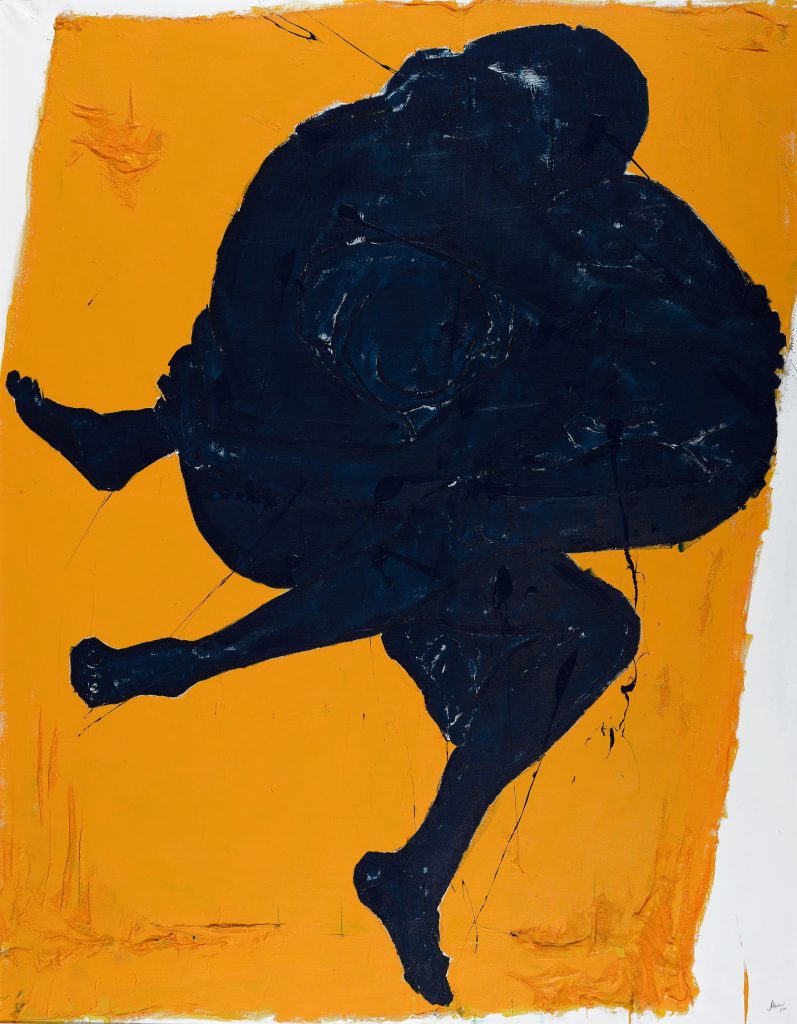
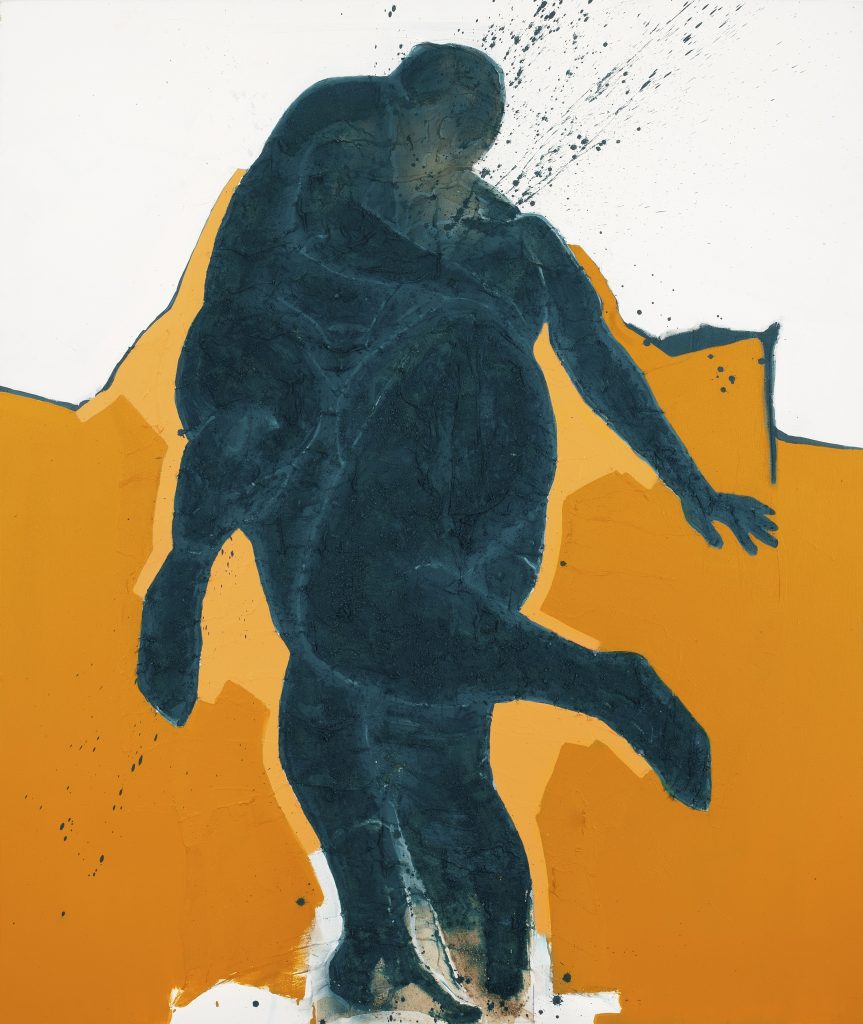
Fab: What project are you working on now? And more of your work can be viewed where?
Albana: Apart from my paintings, I am working on organising my exhibitions for this year. As of today, my exhibitions for this year are the following:
- April-May: Exhibition in Düsseldorf, Burkhard Gallery
- May 25-28: Arco Art Fair, Lisboa
- June: Exhibition in Podgorica, Museum
- July-August: Exhibition in Salzburg, Hangar 7 Museum
Fun Zone: #FabFast5 with Albana Ejupi
- You would spend a billion dollars on…?
Investing overall in my career.
- How many times has your heart been broken?
Maybe once.
- Favourite TV show?
I don’t watch that much TV; I’m more into books.
- Best colour in the rainbow?
Violet
- Most useless talent you possess?
Put away my lashes from the eye
Explore Albana’s gallery. Stay up to date on the newest developments in the world of art; join the Fab community now!
